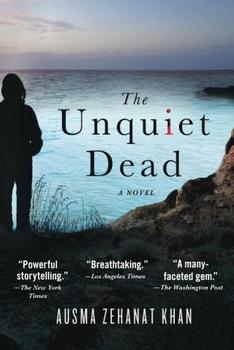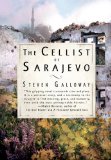Summary | Excerpt | Reviews | Beyond the book | Read-Alikes | Genres & Themes | Author Bio

In what is probably her most autobiographical book to date, Herta Müller's The Fox Was Ever the Hunter explores a group of friends who move between the shadows and light of everyday life, just before the fall of communism in Romania. Using a highly poetic form, Müller feeds us information in tiny drips and drabs while painting us a picture of a surreal existence.
My original assessment of this book was that many readers would probably get frustrated with it because of the famous "nothing happens" criticism. Despite my partial agreement with this, I couldn't stop reading, because the beauty of the writing (which is, of course, a translation, and an awesome one at that) grabbed me from the very start. Although the action is sparse throughout almost the entire novel, what I found was an intricate and evocative rendering of life in a world under a literal "big brother" known as the infamous Securitate - people who secretly informed on their fellow citizens to the government. For anyone who has any knowledge of Romania just prior to the revolution (see the Beyond the Book section), this ethereal rendition of life at that time will be particularly poignant. However, after reading other reviews, I realized that most of the imagery I found in this novel have much deeper meanings that are more universal.
Müller incorporates almost magical imaginings into the gray lives of her characters and those they encounter. For example, a wire factory director has moths that constantly escape from his shirt collar. I'm not sure what Müller meant to symbolize with this - of course, clothes moths are common and notoriously tough to eradicate - but to me it seemed to be a metaphor for the man's internal decay, as if something was eating away at his soul and, when it had its fill, it needed to escape and seek out the light. Yet, if you think about it, moths can be beautiful and soft, floating gently on the air, while this man was anything but those things. Müller fills her novel with these kinds of linguistic pictures, juxtaposing objects that represent both comfort and pain with the opposite emotions of the characters that experience them. It is almost as if the physical and external are both at war with and complement the emotional and internal.
The most impressive example of this is the central image of the story – the fox rug owned by the character Adina. Her fear and anxiety increase as she finds one after another of the fox's extremities cut off, apparently by the Securitate on each of their successive visits to her apartment while she's not there. Whoever is dissecting this rug leaves the parts they cut off in such a way that the fox still looks whole. It is as if Müller is saying that the oppression of the people by the government was done so that it looked like no harm was happening, but that the slightest nudge would prove how mutilated they actually were.
Admittedly, this is not going to be a book that everyone is going to love, and, in fact, I'm sure that many will hate it. However, I hope that those who do read it to the end will realize, as I did, that The Fox Was Ever the Hunter is much more than a bunch of poetic vignettes strung together against the background of communist Romania. There are subtleties here that can only be discovered after finishing it, and they certainly make it worth your while.
![]() This review was originally published in The BookBrowse Review in June 2016, and has been updated for the
May 2017 edition.
Click here to go to this issue.
This review was originally published in The BookBrowse Review in June 2016, and has been updated for the
May 2017 edition.
Click here to go to this issue.

If you liked The Fox Was Ever the Hunter, try these:

by Ausma Zehanat Khan
Published 2015
A complex and provocative story of loss, redemption, and the cost of justice that will linger with readers long after turning the final page.

by Steven Galloway
Published 2009
This brilliant novel with universal resonance, set during the 1990s Siege of Sarajevo, tells the story of three people trying to survive in a city rife with the extreme fear of desperate times, and of the sorrowing cellist who plays undaunted in their midst.
Your guide toexceptional books
BookBrowse seeks out and recommends the best in contemporary fiction and nonfiction—books that not only engage and entertain but also deepen our understanding of ourselves and the world around us.